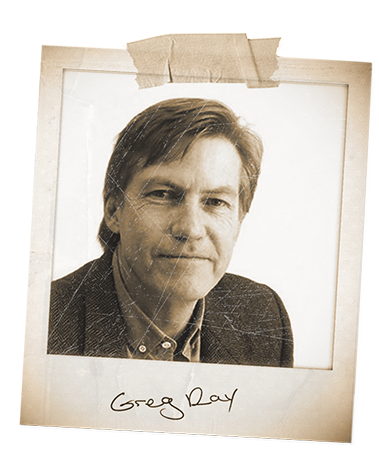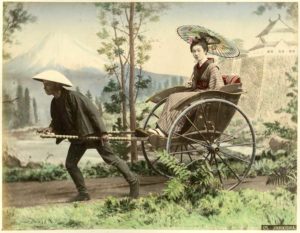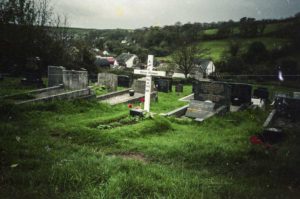Mike Trypas still wonders what made his mother decide to uproot her family from the Greek island of Kos and transplant it in the foreign soil of distant Australia. His father would have been happy to stay and keep living the life of a “peasant farmer”, working somebody else’s land, but his mother must have known that leaving her old life would be the key to a better future for her four sons.
Mike was just five when the family arrived in early June, 1955, after a month-long voyage aboard the MV Skaugum. His parents, Louizos and Ekaterini, and his brothers John (11), Con (9) and George, 7, were put on a train in Sydney and sent to Greta migrant camp, in the Hunter Valley north of Newcastle.
“It was called ‘assisted passage’,” Mike said, but his parents had to repay the Australian Government’s largesse over two years. “I was told there were originally some suggestions of free land and housing, but that never happened.” The family stayed at the former army camp at Greta for about a year, with all six living in a one-room Nissen hut. Mike’s father got a job in the coke ovens at Newcastle’s BHP steelworks and his mother – who could speak several languages – was a valued worker in the camp’s kitchen.

“My father would walk each day from the camp to Greta railway station, take a train to Maitland then another to Waratah from where he would walk to the steelworks,” Mike said. “If he got a double shift at work he would have to climb over the camp fence when he got home late a night because the gates would be closed.”
“We queued for food at the communal kitchen,” Mike said. “Many people were not used to the style of food, they were certainly not big portions and there was no such thing as seconds. My mother broke the camp rules and got a kerosene primus to warm up some soup in our room to make sure we got enough to eat.”

Soon Mike’s dad started to board with another Greek family in Hamilton, so he didn’t have to make the long commute each day, and in time the rest of the Trypas family was allowed to join him – once again all sharing a single room. The family saved as much money as possible and soon was able to buy an old cottage in Ingall Street, Mayfield, in 1957. “It felt like we were finally starting our new life,” Mike recalled.
Mike’s father kept working at the BHP as a labourer in the coke ovens. He remained at the job until he retired. Meanwhile his mother took various housekeeping jobs, and notably worked as housemaid, cook and caretaker at the Marina Café, Tighes Hill, which was owned by another Greek family. “Mum helped raise George and Jim Garis,” who are very well-known in Newcastle,” Mike said.
Growing up in Mayfield in the 1950s was wonderful for a young boy. Mike recalled that horse-trainer Paul Perry lived nearby, and the boys used to ride the horses down to the park then known as “The Flat” – where BHP’s recreation club was later built. Other times they would go prawning and crabbing in Throsby Creek.
On Sunday mornings Mike had a newspaper delivery run. “It was four hours; ten bob for the shift and a shilling to take the billy cart home and look after it for the week. Mum got the ten bob and I got the shilling,” Mike said. The week’s custody of the billy cart wasn’t wasted either. The boys used it to collect beer bottles, going door-to-door in the neighbourhood and asking householders for their empties. There was a shop close by whose owner would pay the boys fourpence for a dozen bottles, but if they felt energetic they would wheel the cart all the way to Newcastle West bottle depot (opposite Sacred Heart church) and get paid an extra tuppence.

Ekaterini Trypas in later life 
Louizos Trypas in later life
“My elder brothers had to leave school early, even though potentially they had the most ability,” Mike said. John went to work at Goodways groceries in Hamilton. Con had variety of jobs, including as a concreter. “They did what they could without an education; they used their hands. They helped out the family with funds. The bulk of their wages was offered to my parents. I remember my father telling the boys: ‘If you want to bank it I won’t take a penny. If you’re going to piss it up against the wall you can pay board’.”
Dangar Park was Mike’s backyard where he and other kids from the area played cricket, kicked a ball and mucked around. Mike was introduced to rugby league by his Aussie mates. “I got heavily involved with football and I ended up playing a lot of rep. Playing in rep games – like City versus Country – was the only way to get noticed.”
In 1971, at the end of a game for his Waratah club, Mike’s friend Terry Pannowitz told him that talent scouts from Sydney club Canterbury had seen him play and were interested. “A couple of years before thatSt George had been interested in me but the transfer system was still in place at that time,” Mike said. Under that system a club virtually owned its players and could prevent them transferring to other clubs by imposing hefty transfer fees – in which the players did not share. In 1971 Balmain player Dennis Tutty sensationally overturned the transfer system in a High Court case where it was ruled a restriction of trade. That paved the way for Mike to move to Sydney, signing a two-year contract with Canterbury.
As fate would have it, everything was happening at once in Mike’s life. Just as he was moving to Sydney he was also marrying. “We got married in January 1972, had two days at the Novocastrian Motor Inn then went to Sydney on the Monday,” he recalled. His wife, Noula, had a Greek father and an Australian mother. Her father, Nick Karanges, had come out from Greece in 1936 to join his brothers to work at the original Niagara Cafe in Hunter Street, Newcastle. In time Nick moved to the Central Cafe at Broadmeadow, near the Century Theatre. At first this was a little milk bar in an arcade near the spot now occupied by Belfora florist, then it moved to bigger premises where Quinlan’s barbecue shop now operates. Noula tells the story how, one day, young Mullumbimby-born waitress Olive May Watts saw handsome Nick – who had been in the basement making chocolates – heading upstairs with a vat of milk. She eyed him off and said, under her breath: “You’re mine!”. And so he proved to be. During World War 2 Olive ran the cafe while Nick went off to fight in New Guinea. When he returned he and Olive were married. Nick was later a significant figure in the formal Greek community in Newcastle.

Nick Karanges in New Guinea in World War 2 
Nick and Olive Karanges
At the time of his own marriage and his move to Sydney, Mike had already started an apprenticeship as a motor mechanic with Newcastle City Council’s electricity supply arm, NESCA. The Canterbury club found him a job in Sydney at Hunter Holden. It didn’t work out. “I stayed a year,” he said. “I couldn’t handle Sydney.” Mike came back to Newcastle and signed up with Newcastle Western Suburbs. About this time his parents bought a second house in Hamilton, keeping the old one as a rental.
Noula, a teacher, coincidentally found herself teaching English at Mayfield East Public School, where Mike had been educated.
In the early 1970s Mike met a Newcastle Herald reporter, Stewart Roach, who helped him get an interview for a job as an advertising sales representative. The interview, in 1974, was at the old Masonic Club – at that time the “unofficial Herald-Sun lunchroom”. His first ad sales job was for a weekly insert, the Hunter Valley Herald, and Mike took to the work with enthusiasm. After 18 months he moved to the Herald‘s motoring section, and later did real estate ad sales. “I’d have liked to try my hand at a journalism cadetship, but it never happened,” Mike said. Over his years at the newspaper he saw the transition from hot-metal printing, and saw the workforce fall from more than 330. He retired in 2014 after 40 years on the job.

Mike and Noula have been back to Greece, and visited the island of Kos, where Mike gave thanks for his mother’s brave decision, back in 1955.
For a wonderful history of Greek cafes in Newcastle, find Spero Davias’s blog here.





